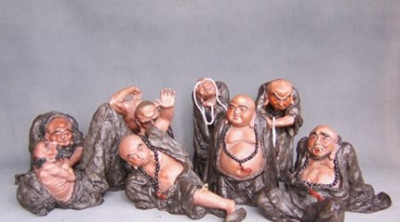It's a sure sign of middle age they say if, when you pick up the newspaper, you turn first to the obituaries.
據說,如果你拿起報紙首先會去翻訃聞版,說明你已經步人中年了。
But middle-aged or not, most of us, I suspect, would love to know what people will actually say about us when we die.
但我覺得,不管中年與否,大部分人都很好奇自己身后會被他人如何評價。
The privileged people I'm focusing on this week were all, one way or another, eager to fix posterity.
本期節目我將關注有特權的人,不管是何人都希望將一世英名流傳給后世。
But nowhere was it so deftly done as in Tang China around 700 AD, where powerful figures didn't just wonder what would be said about them when they died, they simply wrote or commissioned their own obituaries, so that the ancestors and the gods would know precisely how important and how admirable they were.
在公元700年左右的唐朝,達官顯貴不光好奇,還渴望操控自己在后人心目中的形象。他們或親筆摞寫自己的訃告,或委托別人代筆,將自己的豐功偉績昭告祖宗與神明。












